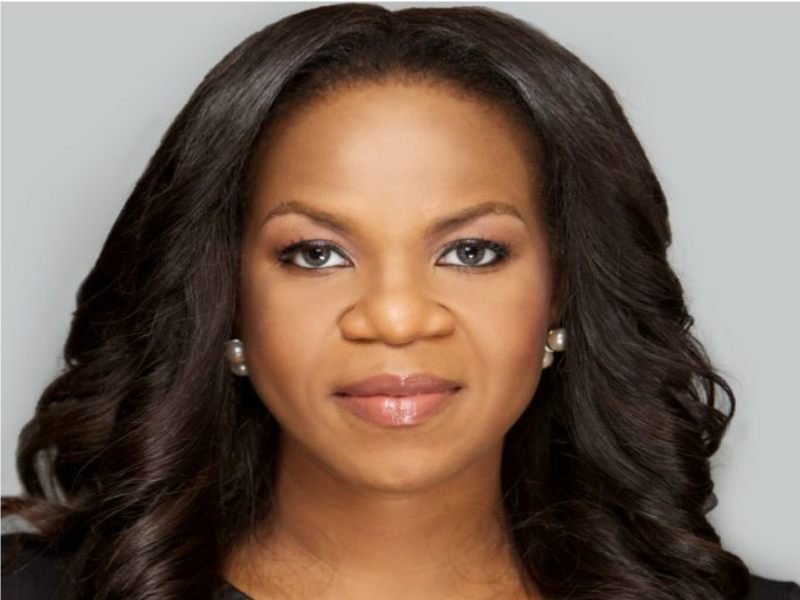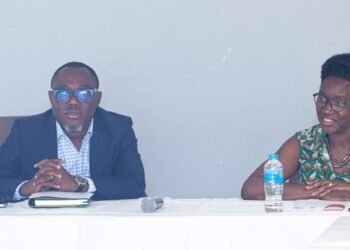Let’s start with some background on yourself and your career in the energy sphere so far.
I have a Bachelor of Science (BSc) in Project Management for Construction and a Master of Science (MSc) in Construction Management. I have always been passionate about building things from a very young age; so, it is no surprise that I made my career around infrastructure projects.
My professional career began in the United Kingdom with building airports as a Construction Manager with Mace London. Subsequently, I worked as Operations and Project Manager on infrastructure projects at various organisations. My foray in the energy sector in Nigeria began in 2011 when I became General Manager of the Lagos State Electricity Board (LSEB). From Lagos, I transitioned to the Federal level where I served as Senior Special Assistant to the President on Power and led the Advisory Power Team. From the Presidency, I was then appointed in May 2017 to my current role as MD/CEO Rural Electrification Agency (REA).
What are the projects that you have been involved with so far are you most proud of or have been the most ground-breaking or both?
The Nigeria Electrification Project (NEP), Energising Economies Initiative (EEI) and Rural Electrification Fund (REF) are close to my heart because of the impact we are already seeing in growing the economy, creating jobs and improving quality of life and education for Nigerians. Notably also, because they are the results of true collaboration across federal, state and local government; and partnerships with the donor community and private sector. This is ground-breaking in itself for a government power sector agency.
With NEP, under the Energising Education Programme (EEP), solar mini-grid and solar home systems components, the REA is providing access to clean, stable and reliable energy to communities, businesses, federal universities and teaching hospitals. For example, with the 7.1MW solar hybrid project for Bayero University in Kano State, which is the largest off grid solar hybrid with batteries in Africa and the 2.8MW solar hybrid project for Alex Ekwueme Federal University in Ebonyi State, reliable electricity is upgrading the university environment, powering streetlights for enhanced security as well as improving the teaching and learning quality for both lecturers and students. The project also enables quality health care services by powering medical facilities, lifesaving equipment and preserving vaccines with university teaching hospitals.
Similar impact is occurring under REF projects where solar mini-grids are using clean energy to power homes, schools, mosques, churches, medical centres and small businesses in rural communities like Akpabom in Akwa Ibom state, Upake in Kogi state and Kare-Dadin Kowa in Kebbi state to mention a few. These communities are now being transformed as their small businesses grow with the constant power and jobs been created as a result.
The EEI is a private sector led project that is electrifying economic clusters across Nigeria. Markets like Sabon Gari market in Kano, Ariaria market in Abia, Iponri market and Sura shopping complex in Lagos and many markets across Nigeria are enjoying clean, safe, reliable and affordable electricity. As a result, market traders are growing their businesses, while the customer experience is significantly enhanced with a pollution and noise free commercial environment.
REA is working hard to scale these projects across Nigeria, which is sure to have significant social and economic transformation in Nigeria’s development.
What in your view are the main challenges right now for Nigeria’s energy sector?
The primary challenge the Nigerian energy sector is experiencing is the imbalance in demand and supply, especially for on-grid power supply. With the projected increase in Nigeria’s population in the coming years, electricity demand will continue to rise.
To close the supply gap, the federal government of Nigeria through the Ministry of Power and the REA is providing off-grid alternative sources of energy, in addition to reforms in the on-grid power sector, to meet the electricity demands of Nigerians, especially to unserved and underserved communities.
Access to funding is also a challenge in the energy sector. While the federal government of Nigeria has been instrumental in funding REA projects and initiatives, significant funding is still required to scale up our work. So far, the REA has been able to secure alternative funding from donor agencies and through Public Private Partnerships.
And the opportunities?
There are huge investment opportunities in the off-grid space which is why most of our projects are private sector-led.
The REA is providing opportunities to grow the off-grid sector with private sector collaboration and investment. We have only just recently signed partnership agreements with seven companies under the Output Based Fund (OBF) for the sale of solar home systems to homes and businesses across Nigeria and the Performance Based Grant (PBG) for the deployment of mini-grids to unserved and underserved communities in Nigeria.
These grant partnerships are an attestation to both local and foreign investors of the Nigerian Government’s readiness to leverage renewable energy technologies for increased access to electricity. There are countless investment opportunities in the off-grid space (on-grid as well) and government has been working hard to create the enabling environment for private companies to participate in this space for the sustainable development of Nigeria’s energy sector.
How important are mini-grids for Nigeria’s energy future?
The International Energy Agency (IEA) predicts that mini-grids could account for up to $300 billion of investment by year 2030. For Nigeria, the off-grid energy market opportunity is massive and mini-grids could account for up to $10 billion annually.
This translates to huge economic opportunities for private sector developers and a larger vehicle for electrifying community clusters across rural and urban Nigeria. Mini-grids, indeed, are the future for reaching unserved and underserved communities with safe, reliable and clean energy.
And renewable energy?
Climate change is a major challenge across the world, this is why Nigeria signed the Paris Agreement on climate change, a landmark agreement to mitigate climate change and to fast track and intensify the actions needed for a sustainable low carbon future.
In addition to this, the federal government of Nigeria has been proactive in developing the renewable energy sector through policies such as the National Renewable Energy and Energy Efficiency Policy (NREEEP), National Energy Master Plan and the revised National Renewable Energy Master Plan.
In 2017, the Nigeria Electricity Regulatory Commission (NERC) approved the Mini-Grid Regulation which paved way for the commercialisation of decentralised renewable energy solutions. These are all decisive steps that are being taken to create the enabling space for a renewable energy sub-sector.
What are you hoping for during the coming edition of Future Energy Nigeria?
I want to promote the Nigeria Electrification Project (NEP) and encourage developers to take part in the programme, which in turn will connect millions of Nigerians to electricity. I hope there will be avenues to identify more funding opportunities, and specifically to bring the public and private sectors together in order to work collaboratively to achieve energy access in Nigeria.
What is your message to Nigeria’s energy sector and to prospective investors and vendors to this market?
The federal government has formulated policies to drive investments in the energy sector. So far, the sector has gained significant attention and growth especially with the implementation of these policies, attracting funding and technical support available from private sector and donor participation.
I proclaim to prospective investors and vendors that there is work to be done in diversifying the Nigerian energy sector and there is no better time to partake in the federal government of Nigeria’s next level roadmap than now. We are open to partnerships that will transform the sector; we are open for business and impactful partnerships with investors. REA projects are proof that government does honour its commitments and be intentional in nurturing an investment climate in the sector.
What are you most looking forward to in Lagos in November?
This session would bring together policy makers, leaders and decision makers under one roof, to discuss and proffer solutions to improving the energy sector. I look forward to new insights, policy reform initiatives and new technological insights to meeting the electricity needs of Nigerians.
Anything you would like to add?
I would like to say congratulations on organising and hosting the 16th edition of the Future Energy Conference and Expo. I commend its role in championing engagement and robust dialogue in the energy sector. It is through such engagements that the sector can come together to work towards a common goal in a strategic and proactive manner.





























































